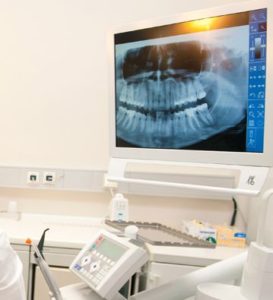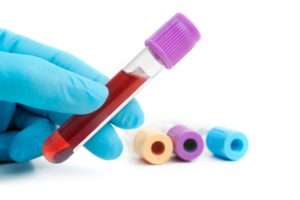Implantology is in fact a surgical intervention, even if minimally invasive, and as such requires some preventive examinations. Here’s how to proceed with the tests before implantology.
Why are assessments important before implantology?

Assessments prior to implantology are essential to define the patient’s suitability for surgery. When we talk about tests before implantology we do not mean only diagnostic imaging tests carried out in the dental center, but also blood tests.
The set of tests and the assessment that the patient is in good health and able to deal with the operation without complications is an important variable to ensure the success of implant therapy.
First phase: the reconstruction of clinical history
The first step of the preliminary tests before implantology is a long chat with the dentist, useful for reconstructing the patient’s clinical history and evaluating any previous pathologies that may represent contraindications for the patient.
Second phase: blood tests before implantology
Blood tests are carried out to get to the bottom and evaluate the presence of other diseases. The values that emerge from the analyzes can highlight the presence of some diseases capable of interfering with the success of an implant operation:
- autoimmune diseases;
- diabetes;
- current or previous infections.
The dentist, based on the patient’s medical history, will prescribe basic blood tests or in-depth investigations.
Blood tests
The blood tests that could be performed during the investigations before implantology are:
CBC
With blood counts if there is a right amount and the right balance between white blood cells, red blood cells and platelets. The lack of one of them or an unbalanced relationship between these elements could highlight the presence of some pathologies: anemia, low level of platelets, difficulty in the blood to clot.
Glycemia
Blood sugar is the main indicator of diabetes, it represents the level of glucose in the blood. Diabetes is often reported as a contraindication to implantology, but if adequately controlled through drug therapies, it can be an easily overcome obstacle.
HIV
This is the virus responsible for AIDS, which is the acquired immunodeficiency syndrome. This pathology lowers the patient’s immune defenses to drastic levels, the dentist can evaluate performing the operation respecting clinical precautions.
Creatinine
The value of creatinine determines the correct blood coagulation. For all surgical interventions it is a value to keep under control, a difficulty to coagulate in fact or the presence of a pharmacological therapy with anticoagulant effects could create problems during implantology.
HCV
HCV is the indicator of hepatitis C, it could be the presence of hepatitis or severe liver inflammation. This type of infection spreads through the blood, so the dentist may decide to move the surgery only after a complete recovery.
As it is easy to deduce, the assessments before implantology are decisive for dealing with the intervention in maximum safety. In any case, the dentist will assess which tests prescribe and follow the protocols provided by the WHO for the protection of the patient’s health.
















